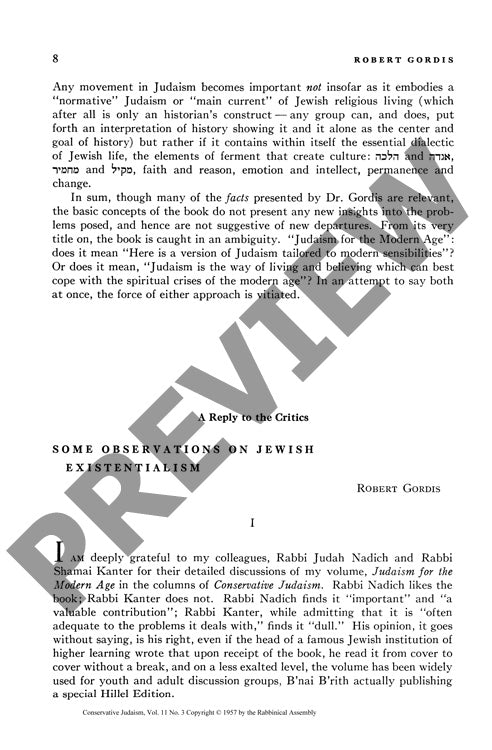Some Observations on Jewish Existentiali
Couldn't load pickup availability
Abstract This article examines Rabbi Robert Gordis's response to critiques of his work "Judaism for the Modern Age," particularly addressing the theological debate between traditional Conservative Judaism and Jewish existentialism. The methodology involves a detailed analysis of two reviews—one supportive by Rabbi Nadich and one critical by Rabbi Kanter—with Gordis providing systematic counterarguments to existentialist interpretations of Jewish theology. The study explores three fundamental pillars of Jewish religion: God, Israel, and Torah, examining how contemporary existentialist thought diverges from classical Jewish tradition. Key findings reveal that Jewish existentialism, while serving as a corrective to excessive rationalism and scientism, has overreacted by diminishing the centrality of Jewish peoplehood (Israel), relegating Torah to secondary importance, and emphasizing divine transcendence to an extreme that empties the world of divine goodness. The analysis demonstrates that existentialist interpretations often reflect borrowed Christian theological concepts rather than authentic Jewish tradition. Gordis concludes that vital Judaism requires both historical scholarship to discover traditional content and rational evaluation to assess truth and relevance. The article argues that while existentialism performs valuable functions in nurturing God-consciousness and challenging modern assumptions, it fails to represent the balanced approach of classical Judaism, which integrates reason with faith, individual with collective concerns, and divine transcendence with worldly engagement.

More Information
-
Physical Description
-
Publication Information
Published 1957
ISBN
-
Publication Credits
Robert Gordis

